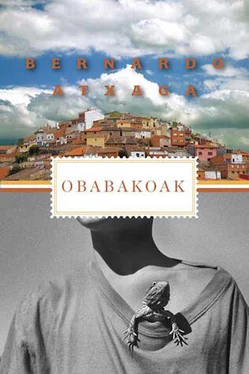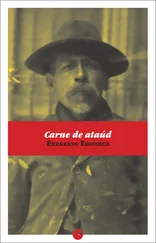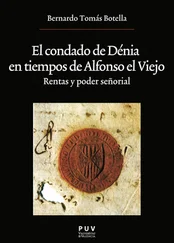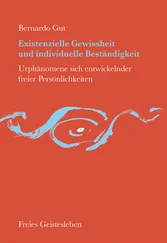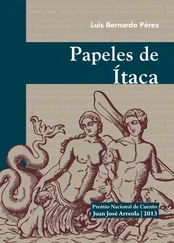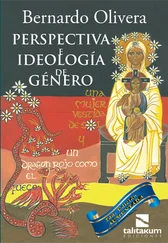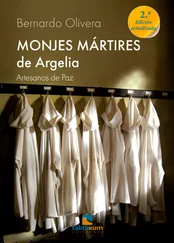Bernardo Atxaga - Obabakoak
Здесь есть возможность читать онлайн «Bernardo Atxaga - Obabakoak» весь текст электронной книги совершенно бесплатно (целиком полную версию без сокращений). В некоторых случаях можно слушать аудио, скачать через торрент в формате fb2 и присутствует краткое содержание. Год выпуска: 2010, Издательство: Graywolf Press, Жанр: Современная проза, на английском языке. Описание произведения, (предисловие) а так же отзывы посетителей доступны на портале библиотеки ЛибКат.
- Название:Obabakoak
- Автор:
- Издательство:Graywolf Press
- Жанр:
- Год:2010
- ISBN:нет данных
- Рейтинг книги:3 / 5. Голосов: 1
-
Избранное:Добавить в избранное
- Отзывы:
-
Ваша оценка:
- 60
- 1
- 2
- 3
- 4
- 5
Obabakoak: краткое содержание, описание и аннотация
Предлагаем к чтению аннотацию, описание, краткое содержание или предисловие (зависит от того, что написал сам автор книги «Obabakoak»). Если вы не нашли необходимую информацию о книге — напишите в комментариях, мы постараемся отыскать её.
Obabakoak
The Observer
Obabakoak — читать онлайн бесплатно полную книгу (весь текст) целиком
Ниже представлен текст книги, разбитый по страницам. Система сохранения места последней прочитанной страницы, позволяет с удобством читать онлайн бесплатно книгу «Obabakoak», без необходимости каждый раз заново искать на чём Вы остановились. Поставьте закладку, и сможете в любой момент перейти на страницу, на которой закончили чтение.
Интервал:
Закладка:
Worried by what I heard, I opened my eyes again to find that the visitors we had so long expected had arrived. Before me stood three Ashaninka and behind them another ten, another hundred, another thousand. They filled the whole beach, waving their bows and arrows. They were completely naked, their faces and bodies daubed with red and black paint.
César Calvo and Laura were trying to talk to the man who was apparently the leader of the group. They pointed at me again and again and I thought I could make out the two most important words to me at the time: naka and shirimpiare. Then I lost consciousness.
I did not come to until many days later and I was not a witness to what happened after the Ashaninka had agreed to take us to the place where they were living. However, according to what César Calvo told me later, we entered the village surrounded by children and in the midst of general merriment. It seems the Ashaninka were much taken with Laura’s blond hair and whenever one of the Indians touched it, the others would explode into loud laughter.
Then the majestic figure of Pullcapa Ayumpari, the shirimpiare, had appeared, the only Ashaninka with the right to paint his body and face in three colors, with white as well as the red and black that the others used.
“I realized at once that he would do us no harm. He looked at your ankle and frowned as if he were concerned about the swelling,” César said.
“The Ashaninka build two huts for each individual,” he went on. “One, which they call tantootzi, for the family and the other, which they call kaapa, for their guests. Pullcapa Ayumpari ordered you to be taken to his own kaapa. Laura and I were given a good hut on the other side of the village. Can you really remember nothing of what happened?”
“Very little,” I replied. “I remember that the Ashaninka looked after me and that I slowly began to feel better. Apart from that, all I remember is the rain. The noise it made on the roof of the kaapa used to wake me up.”
“Of course. You were hovering between life and death for twenty days. More than enough time for the rains to begin.”
César Calvo was absolutely right. I had spent twenty days in the house of the shirimpiare, Pullcapa Ayumpari, and when I left, I was completely cured. An old woman signaled to me to follow her and led me to the hut occupied by my companions. As soon as I entered I saw Laura and my heart leapt: She was a lovely woman again, the same beautiful girl I had met in Cuzco. It seemed the Ashaninka had also been ministering to her and had restored her to health as well.
Laura let out a yell and threw her arms around me. She was laughing and crying at the same time and kept saying how glad she was to see me again. She had feared the worst.
Yet she was downcast. She had discovered nothing about her husband. There was no trace in the village of Dr. Thomas Sheldon.
“The Indians don’t want to tell us anything,” said César Calvo. “Either that or they can’t. Every time I ask them something they just burst out laughing. It’s the same with the old woman the shirimpiare has placed at our service. I try to worm things out of her but it’s useless. She just laughs and goes on with her work.”
“I’m sure they know something.” Laura sighed. But she was not convinced by what she said.
This was not the journey’s end we had expected. Danger and even death, yes, but we had also expected some news of Laura’s husband. In fact just the opposite happened. They treated us like honored guests but told us absolutely nothing.
And meanwhile, it rained, endlessly. It rained on the huts, on the trees, and on the fields. The only song to be heard in the jungle was that of the rain.
“That’s why we’re still here,” said the wise man of Iquitos, “because the waters of the Unine are running so high it would be impossible to row down it. As soon as the rain stops, they’ll take us back to La Atalaya.”
Little by little, an idea began to take hold of me, that of searching Pullcapa Ayumpari’s tantootzi. If Dr. Sheldon had come up the Unine, and we knew that such a possibility existed, there must be some evidence of him in the village. To find out what had happened to him, all we had to do was get into that tantootzi, the most likely place to find such evidence.
I mentioned my idea to César Calvo.
“We can’t let Laura go back empty-handed. There’s nothing worse than uncertainty. She has to know if her husband is alive or dead,” I said.
“It’s very risky. An Ashaninka cannot forgive someone who goes into his house to steal. The punishment is death. Always, without exception.”
I remained silent for a long while, watching the rain.
“The rainy season will be over soon and on that day the Ashaninka will hold a celebration. But not here in the village. They’ll go to the shores of the Unine,” whispered the wise man of Iquitos, adding: “That’s our only chance.”
“I’m going to give it a try,” I said.
César Calvo nodded, smiling. He was not unaware of the motives that lay behind my decision.
“I’m afraid otherwise Laura may go mad,” I said in justification of my action. “She seems more and more turned in on herself. She spends hours staring out at the jungle, without saying a word.”
“Yes, we must do something,” said César encouragingly.
Hardly a week had passed before the blue sky returned to the Amazon. The Ashaninka greeted it with laughter and shouts, with an enthusiasm that to us, the inhabitants of another world, seemed childish. Nonetheless, their high spirits were enviable. They were happy, we were not.
The preparations for the celebration began very early. Warriors, old men, and children allowed themselves to be adorned by the women. Seated at the doorway of his tantootzi, Pullcapa Ayumpari was arrayed like a peacock. He would without doubt be the most distinguished figure at the celebrations.
By midday, the village was practically empty. Only three warriors remained on guard at the entrance, but they were too drunk on chuchuwasi to carry out their duties. The moment to take action had arrived.
“I’m going to have a look around the shirimpiare ’s hut. I may find something,” I said to Laura before leaving. She was lying down on her bed with her eyes closed, even more downcast than usual.
“You are a brave boy,” she said, opening her eyes and making an attempt at a smile. I took that smile, locked it in my heart, then left, absolutely determined to discover something.
Pullcapa Ayumpari’s tantootzi was much darker inside than one would have expected on such a bright day and it took some time before my eyes could make out what any of the objects scattered around the room were. Finally I managed to identify the clay containers in which the shirimpiare kept his ointments, as well as some masks that I had never seen him wear but that were presumably for use in religious ceremonies. I made my way over to the bed, which was no larger or more luxurious than those we had in our hut, and then I stopped. Something was not quite right here. But what? I realized that my eyes had glimpsed something, but I couldn’t put my finger on what it was. I searched every corner but could find nothing unusual.
“I can’t see it now, but I did see something,” I thought, and then returned to the part of the tantootzi I would have seen on first entering the hut.
Then I spotted it. It was rectangular in shape and lay among the clay containers. It looked like a book. My fingers confirmed that impression. The cover read: Discours sur les sciences et les arts by Jean-Jacques Rousseau. And on the third page, in tiny writing, were the words I had so longed to see: If lost, return to Thomas Sheldon, Medical Captain, Fleury, Normandy.
Читать дальшеИнтервал:
Закладка:
Похожие книги на «Obabakoak»
Представляем Вашему вниманию похожие книги на «Obabakoak» списком для выбора. Мы отобрали схожую по названию и смыслу литературу в надежде предоставить читателям больше вариантов отыскать новые, интересные, ещё непрочитанные произведения.
Обсуждение, отзывы о книге «Obabakoak» и просто собственные мнения читателей. Оставьте ваши комментарии, напишите, что Вы думаете о произведении, его смысле или главных героях. Укажите что конкретно понравилось, а что нет, и почему Вы так считаете.
